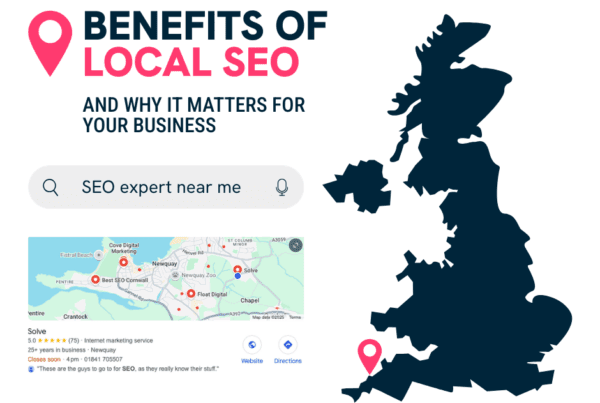
8% more conversions – that’s how much a 0.1-second improvement in mobile page load speed can impact sales. As a confirmed ranking factor and major influencer on website user experience (UX), page speed matters to both search engines and users alike.
But exactly why is page speed so important and how can you improve it?
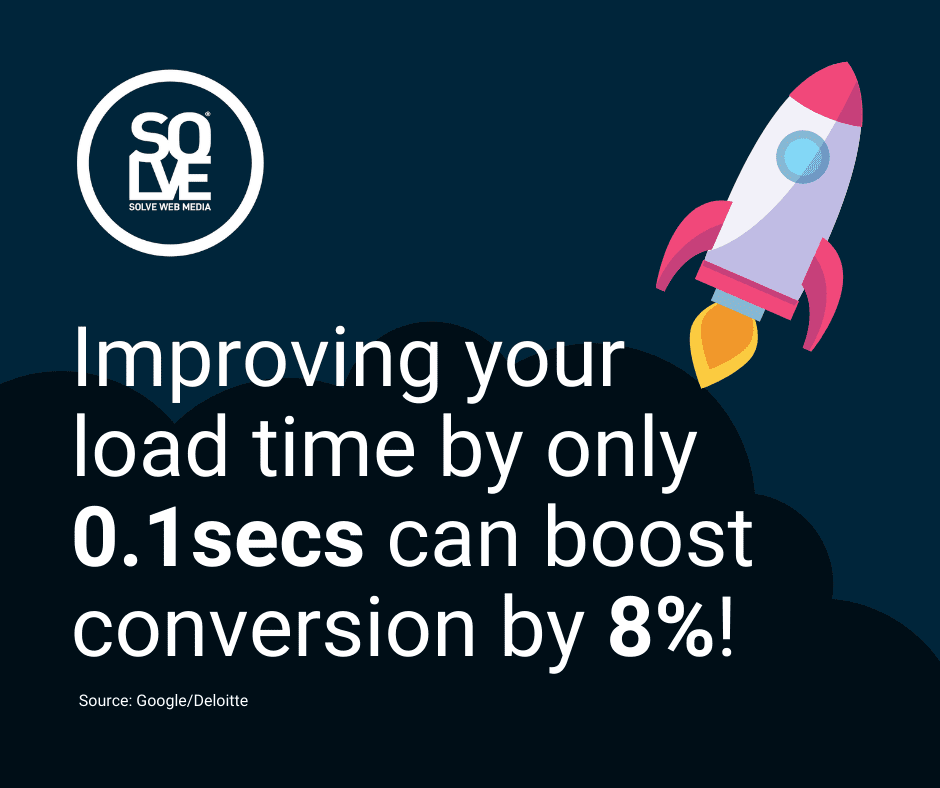
Google/Deloitte
What is Page Load Speed?
Page load speed is the vital number of seconds it takes for the content on your web pages to appear in front of users.
Why is Page Speed Important for SEO?
1. Page Speed Affects User Experience
It’s the 21st century and people want information almost instantly – no one has time for a world wide wait on the world wide web. Like Johnny 5, today’s internet users need input and they need it fast. So if your site doesn’t deliver the goods in a matter of seconds, your visitors will have a negative experience on your site, and it won’t just affect your sales. User behaviour on your site sends important signals to search engines too, which in turn, impacts your ranking.
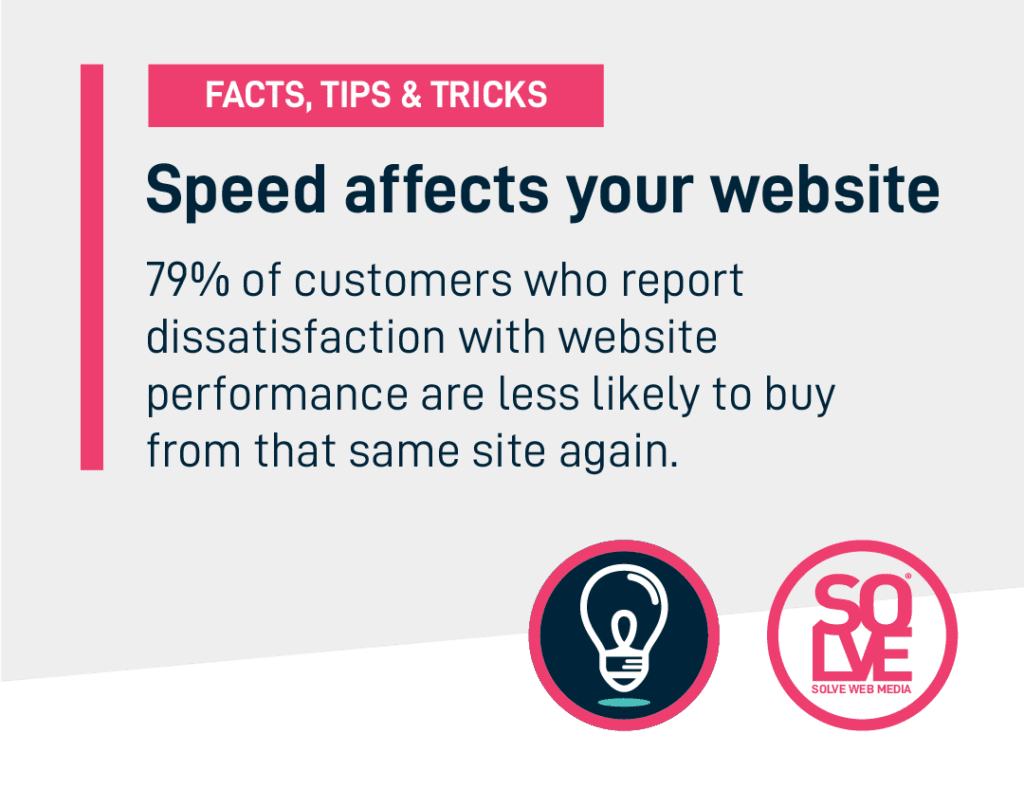
A Poor First Impression
Your page speed is the first impression people get from your website. Before they have a chance to see your gleaming logo or legendary image carousels, they’re sat waiting for your page to load. And there’s nothing more frustrating than waiting. It leaves a bad taste in prospective customers’ mouths before they’ve even seen your site. In fact, up to 79% of people who have a negative experience on a website are less likely to repeat buy.
High Bounce Rate & Low Time on Page
And some users won’t have the patience to stick around. Recent research concluded that 47% of people expect a website to load in 2 seconds or less, and in fact, 40% will give up if it takes more than 3 seconds to load. So if your page speed isn’t up to scratch, chances are you’ll have a high bounce rate and/or low time on page too.
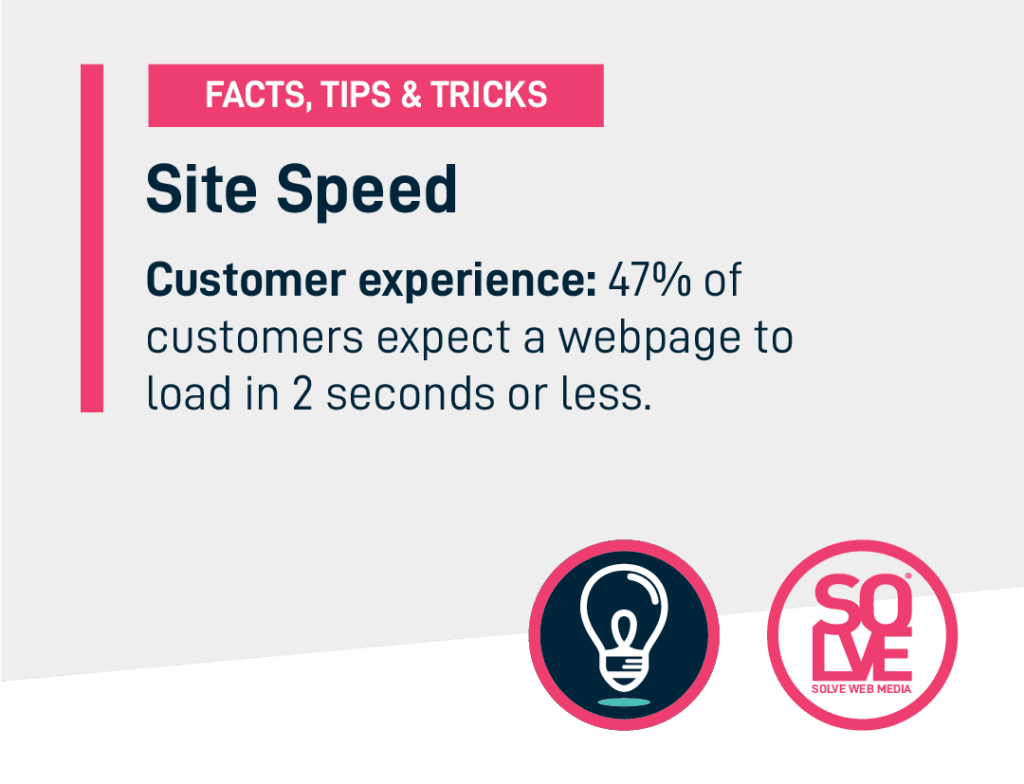
Fewer Page Views
If your site users aren’t sticking around, you’re losing page views as well. Case studies show that even a 1-second delay can lead to 11% loss of page views.
Poor Conversion Rates
Even if users get past the first page and browse around your site, if they are continually faced with delays, you might lose them at the final hurdle. It’s estimated that 1 out of 5 shoppers will abandon a cart if pages are too slow to load, costing up to $3 billion per year.
Even a 1-second delay can mean 7% less conversions every day.
And even the big boys are affected. Retail giant, Amazon, calculated that a one-second delay in page load speed could cost them $1.6 billion in sales each year. While Google has calculated that by slowing its search results by just four-tenths of a second, it could lose 8 million searches per day.
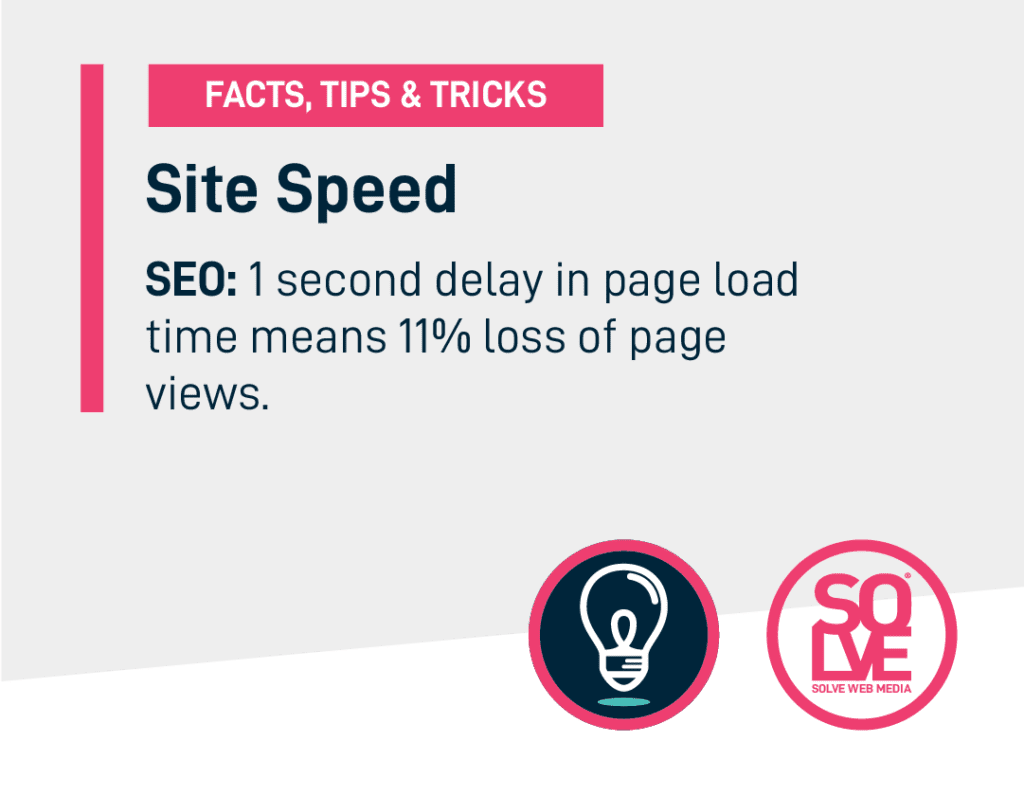
2. Page Speed is a Confirmed Ranking Factor
Google likes happy users, and they recognise the impact page load speed has on user satisfaction. Core Web Vitals are a major part of Google’s methodology when evaluating user experience. Core Web Vitals assess a website’s loading, interactivity and visual stability of content, with the overall score influencing your ranking. This is why page load speed is a confirmed ranking factor, both on desktop and mobile sites. So as well as indirectly affecting your SEO through poor user experience signals, a slow page speed directly impacts on your position in the SERP.
The faster your site, the better your ranking.
Page Speed in the Mobile Era
Your page load speed on mobile is more important than ever.
We love our smartphones and they’ve changed the way we access the internet. In 2008, just 20% of people went online on their mobile phones. By 2018, that figure had soared to 72%. This is the mobile era and it’s not going unnoticed by our largest search engine, Google.
In 2018, there were major changes to mobile search, with Google rolling out important mobile-based algorithm updates. The Speed Update introduced page load speed as a ranking factor on mobile as well, and Mobile-First Indexing meant that mobile sites were considered before desktop sites for indexing and ranking.
So, in today’s digital world, making sure you have a mobile-friendly site that’s quick to load is crucial to online success.
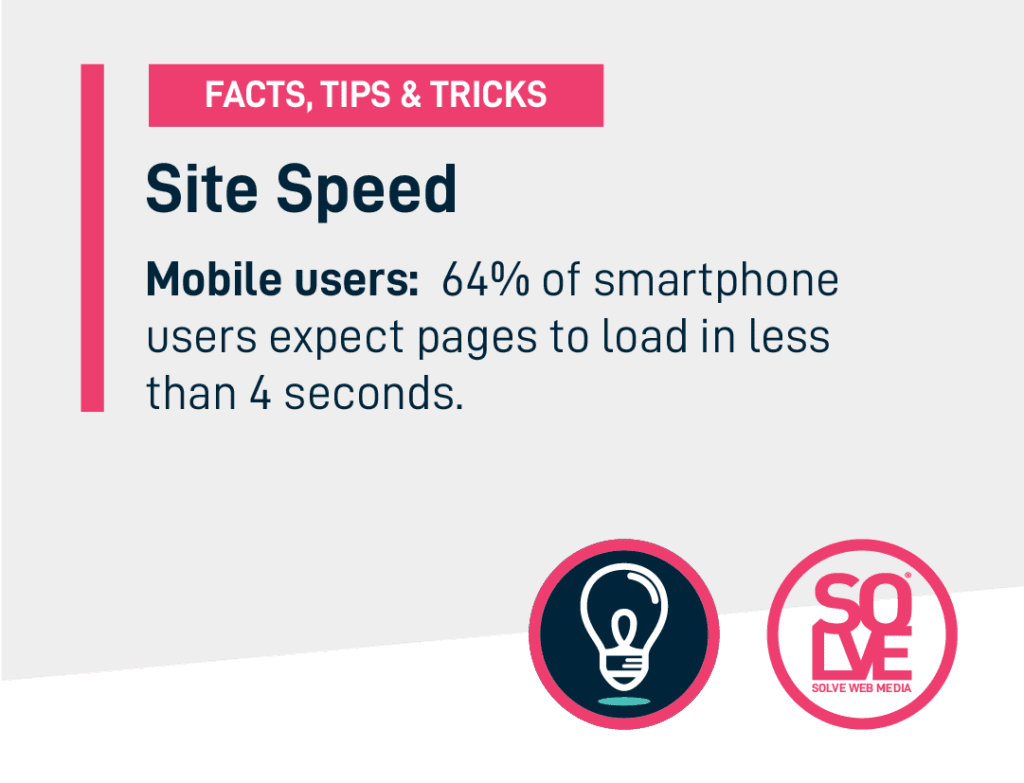
What is a Good Page Speed?
There are a number of tools out there to check the load speed of your website. Think with Google, Pingdom and Web Page Test can all assess your site speed, but the two of the most popular are GTmetrix and Google’s PageSpeed Insights. Here at Solve, we think GTmetrix is one of the most rounded tools available. GTmetrix will grade your site and score it based on page performance and structure, and provide you with an average load time and suggestions on how to improve.
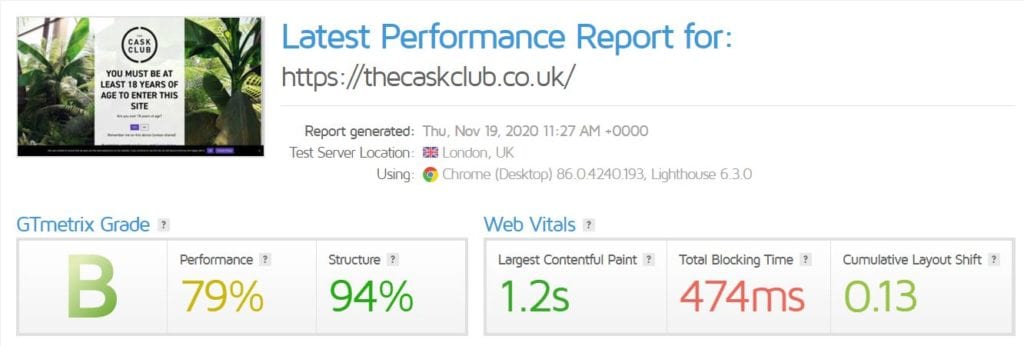
Why is GTmetrix better than PageSpeed Insights?
- GTmetrix is now powered by Google’s Lighthouse data, but it provides much deeper analysis, graphs and insights than Google’s own PageSpeed tool.
- GTmetrix now has over 20 test locations, allowing you to test your website on a server in the country you are targeting – giving you a more accurate result.
- GTmetrix provides in-depth analysis showing load time for each website element – making it easy to see what needs improving.
- With GTmetrix tool you can see and change the browser that the score and page speed is based on.
- On GTmetrix you can run speed tests on multiple resolutions on desktop and mobile.
- GTmetrix supports HTTP/2 protocol.
How to Improve Site Speed
There are 3 main reasons why page load speed might be slow:
- Your servers are inadequate
- Your media files are too big
- Your website design isn’t optimised
So, how can you increase your page speed?
1. Get Better Web Hosting
All websites need to be stored somewhere, but each web host uses different types and locations of servers, which can have a dramatic impact on the page speed of your website. If your load time is too slow, it might be worth considering changing your web host to one that has fast, optimised servers. And if you have international traffic, you might want to use a Content Delivery Network (CDN) to put your information closer to your users.
Here at Solve, not only are our servers super fast, they’re super secure, local (helping with GDPR compliance) and even eco-friendly.
Find out more about our web hosting.

2. Optimise Your Images
High-resolution images really slow your page speed down. And a lot of the time, it’s overkill for web browsing that adds vital seconds to your page speed. The images on your website need to be resized and compressed to reduce file size, while still maintaining a quality look.
At Solve, image optimisation is included in our standard website maintenance plan or we can perform as a one-off service to improve your page speed.
Find out more about how images impact SEO and our website maintenance packages.
3. Optimise Your Site Design
Sometimes websites themselves are just too clunky in their design. But fear not, streamlining and optimising coding, reducing redirects, removing JavaScript and leveraging browser cacheing are just some of the ways that a web design partner, like Solve, can improve your site performance.
Find out more about our high-performance web design.
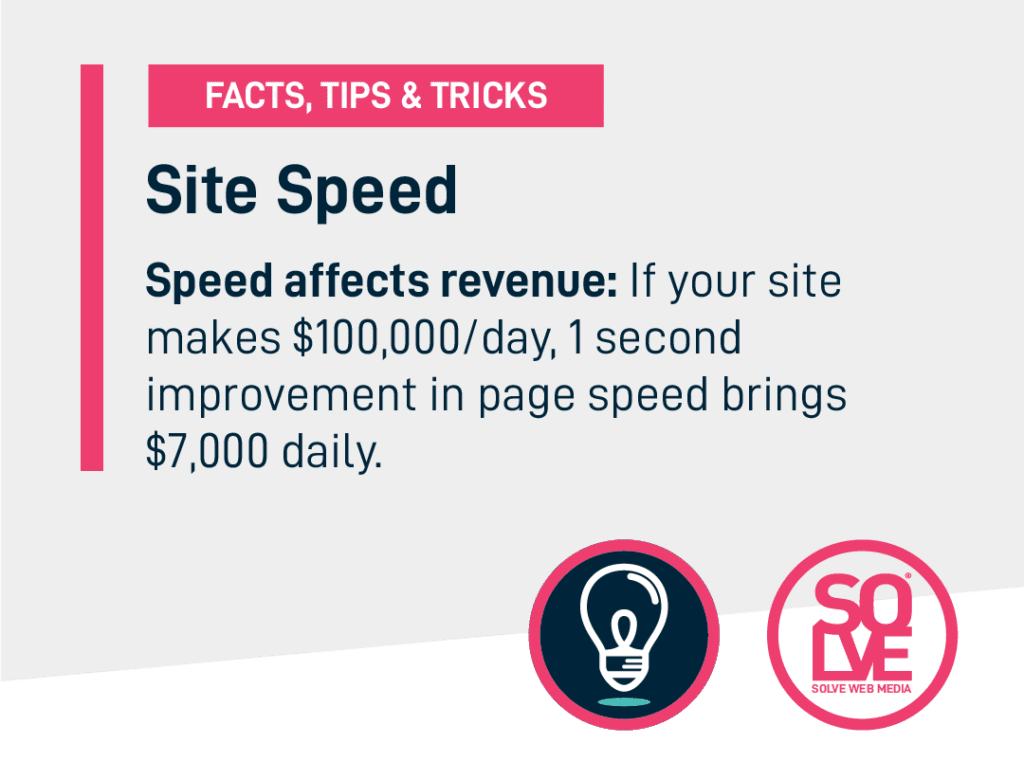
SOLVE-ING YOUR PAGE SPEED ISSUES
From our eco-friendly, state-of-the-art web hosting servers to our knowledge of image compression and web design, our team of hand-picked talent can advise on all things page speed.
So if your website needs to pick up the pace to compete in the online race, give us a call today.

